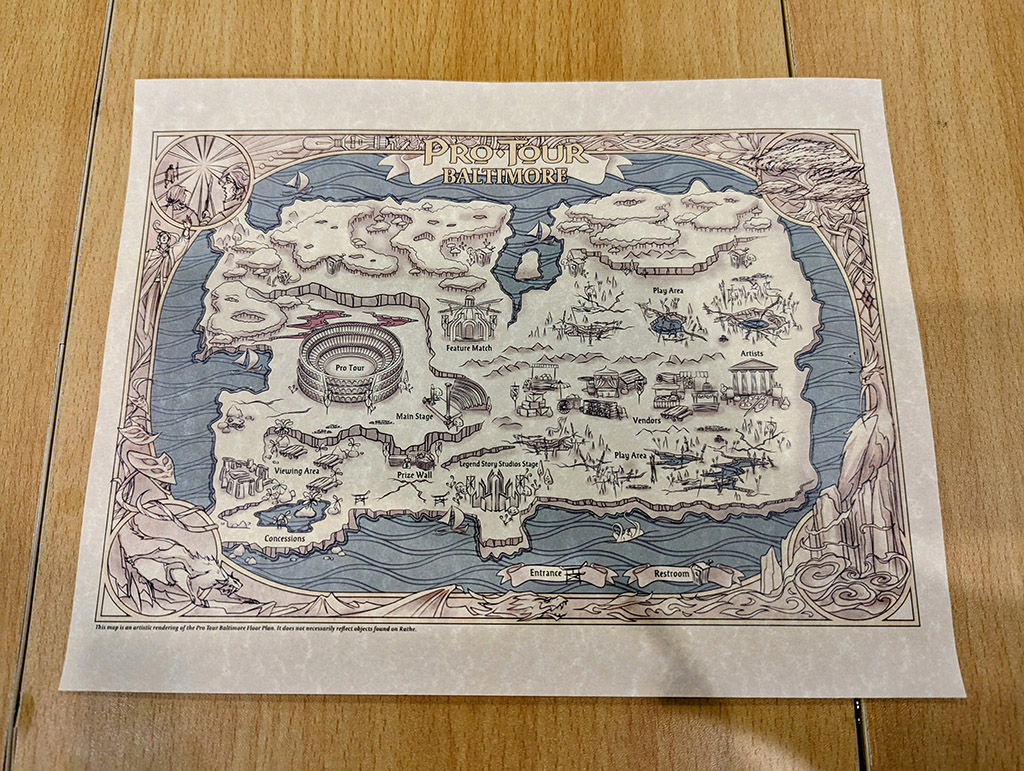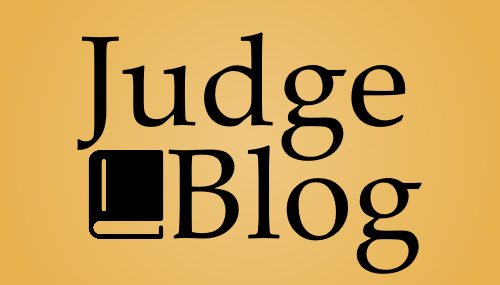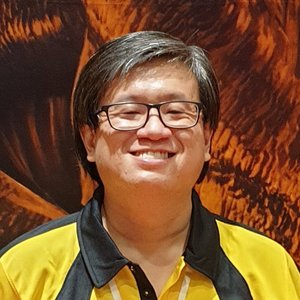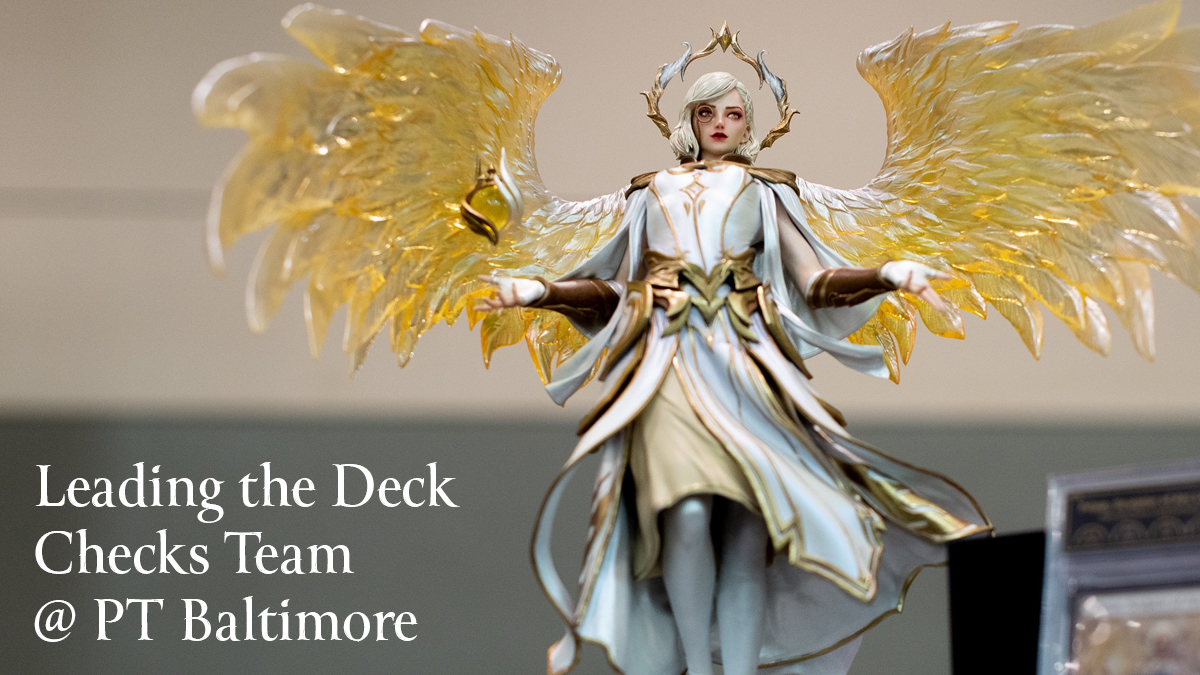
Leading the Deck Checks Team at PT Baltimore
August 5, 2023
QJ Wong is a Level 2 Flesh and Blood Judge from Malaysia and a guest writer for the JudgeHub blog. The opinions expressed in the article are his own and do not necessarily reflect those of Legend Story Studios or the Judge Program.
Hello! My name is QJ Wong, a L2 from Malaysia, a tiny country in the southeast end of Asia.
A Little Bit About Myself
I’ve been involved with trading card games for over 20 years, and have played dozens of all sorts of games. This includes judging and running tournaments, locally as well as internationally. I was a competitive grinder before I discovered that judging gave me a sense of accomplishment and satisfaction I rarely get from anything else. On top of that, there’s a special type of joy in having players tell you that they’re happy to see you judging the events they’re playing.
I own a hobby store in Melaka, Malaysia, tucked away a few hours drive from two major playing population centres that are Kuala Lumpur and Singapore. Being from a remote area has its challenges, but that’s a story for another day.
I’ve been fortunate enough to be selected to lead the deck check (DC) team on PT Day 1 (Friday)! It’s been quite a few months since Baltimore, but I hope you won’t mind this delayed tournament report!
I’m just going to jump into some more interesting (in my opinion) stories and skip a lot of the basics like how to check decks, or specific details; feel free to ask me if you want me to elaborate on anything or talk about anything specific. It focuses on only one specific day, and I won’t be covering rules/policies questions. That can probably fill up a few more thousand words in another article.
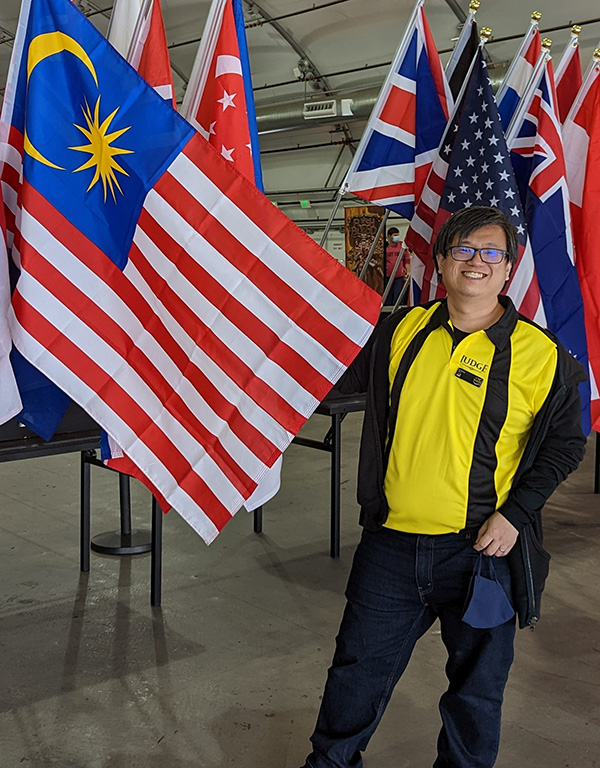
Leading the DC Team
What does leading a DC team actually mean?
The DC team in my opinion, has a few key responsibilities:
- Making sure we have everyone’s decklist in the tournament
- Ensuring tournament integrity by deterring players from unfairly gaining an advantage (by adding / modifying cards to their cardpool and through marked cards) by doing random deck checks throughout the tournament
- Assist players with concerns related to their decks and/or decklists (customer service – help check for potential marked cards, verifying their decklists and so on)
My advice to anyone who is unsure about being in this role is to plan ahead and discuss in depth with your head judge and other team leads about what exactly is expected from you. Also, try to simulate the day: what needs to be done, and what can you do to prepare to do those tasks.
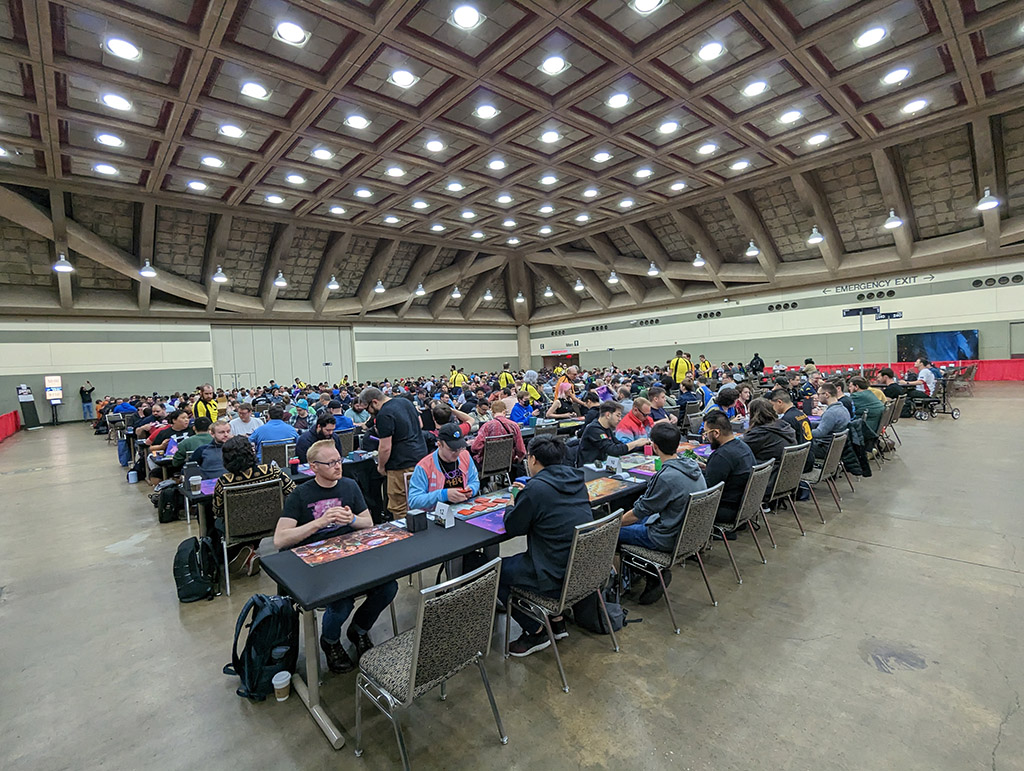
The Tasks
On Friday, it was a mixed format event, with 4 rounds of CC and 3 rounds of draft for about 400 players. Our challenges are then:
- We have two sets to decklists we need to make sure we have (CC and draft), plan for and organise
- Only 4 rounds to deck check CC while hunting for tardy decklists
- While checking decks all day long
Luckily, my team was stacked! With Emilien Wild, Joe Kavanagh and Matthew DiGregorio, there was a lot of experience, ability and knowledge that I was confident we could deal with anything that would be thrown at us.
In terms of collecting, organising and sorting decklists, with CC decklists collected digitally, there’s not much we need to do in terms of sorting, however, we will likely have missing decklists to find.
Draft decklists is a different form of challenge, and I’ll talk more about it later.
A lot of the pre-event communication also focused on non-traditional deck checks, which I’ll also talk about later. Stay tuned!
Unexpected Challenges
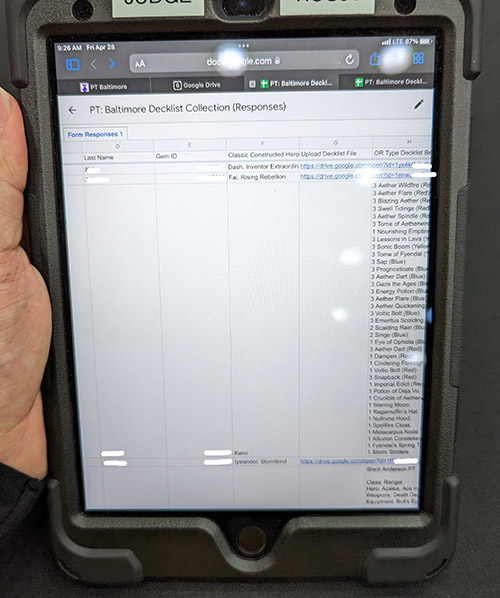
Right from the beginning however, we were thrown our first curveball. The following situation is shared with Ward Warren from Star City Games to check in case there is anything that shouldn’t be publicly talked about, but I got the all clear!
The team had problems accessing players’ decklists. They were collected into a Google Sheet resulting in a lack of uniformity of data: some decklists were in PDF, some as plain text, creating these very uneven rows (see photo).
Additionally, the iPads provided are not suitable to view the data. Google Sheets does not work well in Safari browser where a lack of search function makes it almost unusable. We believe we need the Google Sheet app to access the search function, which was not present in the iPads provided. If I missed anything (I’m not an Apple user), please do let me know so I could be corrected, and be better prepared for future events!
After submitting the above feedback, Ward has since told me that SCG will be working to improve the situation above, which was awesome to hear.
Joe and I have laptops that we quickly brought out for the team to use to check decks with, and alongside our phones, we managed to get the job done.
The lesson here for me was I could have done more to actually find out what are the tools available for me and my team. All I did in my pre-event communication was confirming that, yes we are collecting the decklists digitally, and I just left it at that. If I had done more, asked more questions, I could have avoided some of the issues we encountered.
The Race to Find the Missing Decklists
We started with a player list and we were working our way through the papers to find the missing players when Joe took charge of the problem and did some spreadsheet magic. Joe cleanly extracted a list of names whose decklists were still outstanding by the beginning of Round 2 and with the help of the other teams, we quickly cleared through the lists.
Happily, very early in the round I could report to the head judge, Amanda Coots that we had no missing decklists.
Non-Traditional Deck Checks
During PT Baltimore, a few alternative deck check methods that were proposed by Dan Collins’ article were also tried. Amanda decided that we were to do a mix of traditional and the new checks, and so we did. If you are interested in my thoughts on the checks we did on this day, I highly recommend you read Dan’s articles first. Otherwise, feel free to skip this section.
“Marked cards checks” were not very intrusive and we could get many done through the rounds, so we did a lot of those. My favourite was definitely the “Photo checks”, where we could quickly return the decks to the players and take our time in matching the contents to the list. During the draft rounds because of how short the rounds are, we only did “Photo checks”.
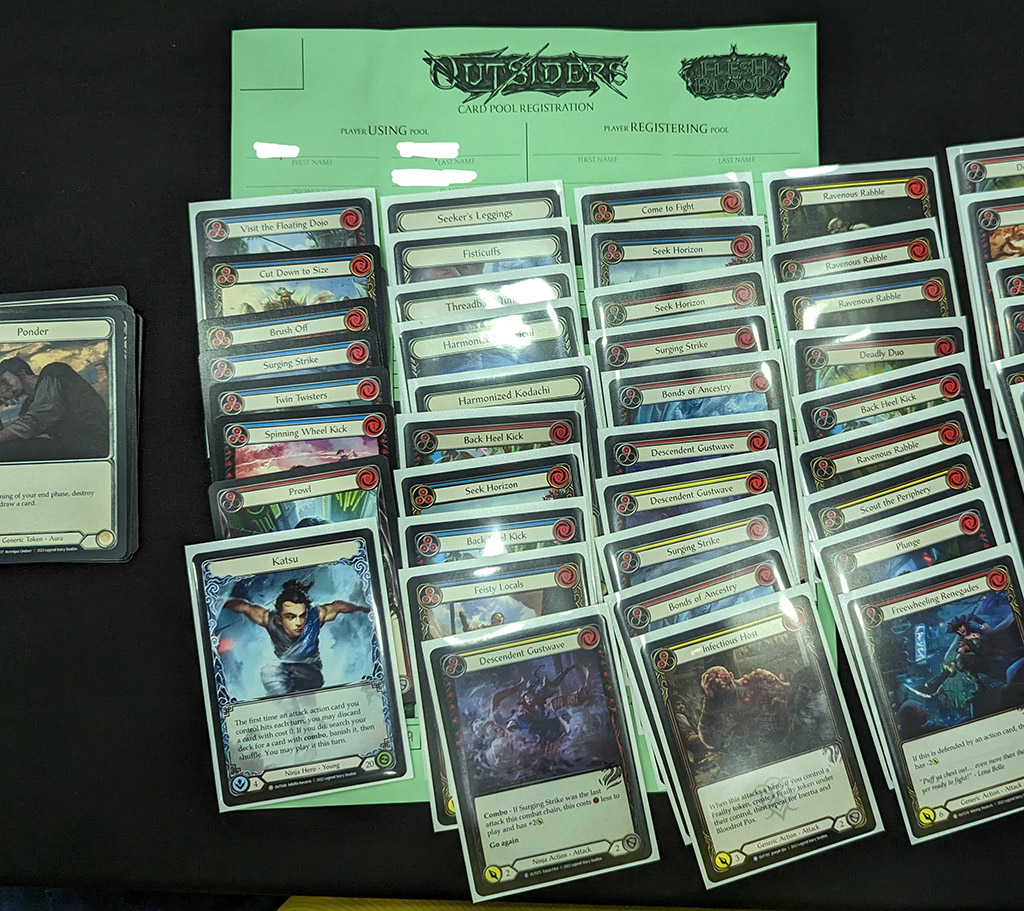
This is very much a personal bias, but partial check methods such as “board-state” or “Inventory/Cardpool” checks leave an incomplete feeling for me, so to be honest, I am not a very big fan. However, I can definitely understand how certain objectives are achievable both in terms of the check with this method.
As I’ve shared with Dan after the event, with alternative methods, DC team members are able to spend significantly more time doing checks of all sorts without too much impact at the end of the round. Depending on the individual’s affinity of this sort of judging work, this could be a good or bad thing. Also, the DC lead will have to be vigilant in balancing floor judging presence and deck checking duties.
Organizing Draft Decklists
Having the decklists be clearly marked at the back is vital. SCG had prepared this for us from the very beginning, so that was very much appreciated. This is because the decklists will be collected at uneven intervals and won’t be by pods. By making sure we have plenty of space to lay out all the pods clearly separated, we could sort the lists by pods as they come in.
By making note of pods that are not 8 players, and checking if we have 8 of everything else, we could quickly verify that we had no missing decklists. This also meant we could quickly jump into doing deck checks right away as round 5 starts.
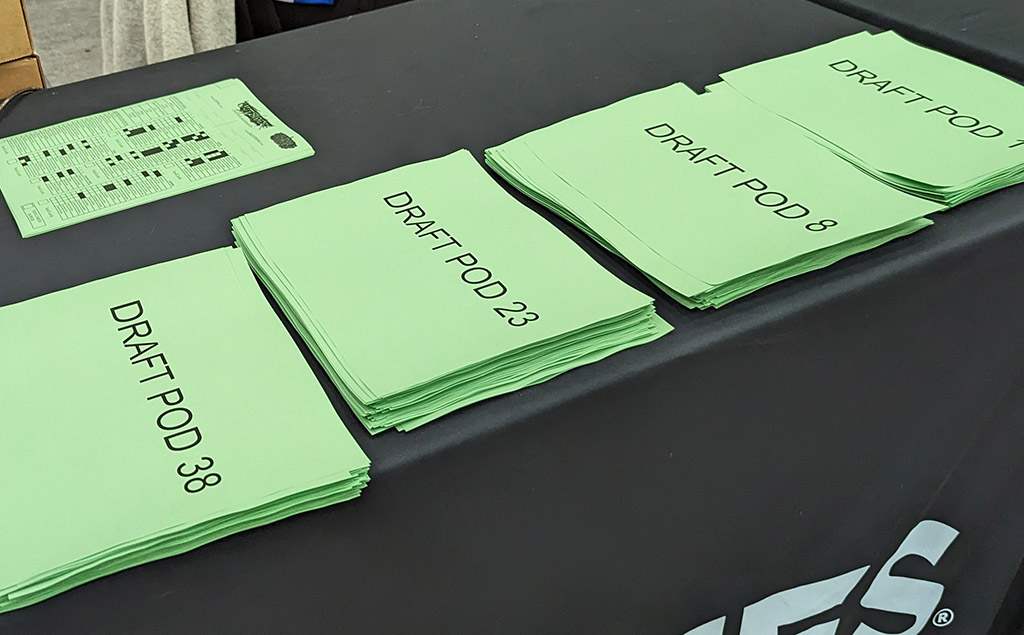
Wrapping Up
Can you believe it’s already over a thousand words? I’m going to end my tournament report here. I hope these odds and ends stories have been of interest to you.
I had many great conversations at the weekend, and I hope I managed to teach maybe a little bit here and there. I am very grateful to LSS, SCG and the judge program for the opportunities given, and very thankful for all the lessons, guidance and support I’ve received from everyone. Hopefully I will be able to see you soon at a future event, and if you ever drop by my neck of the woods, I’ll be happy to show you around.
Any form of feedback, suggestions, and corrections will be greatly appreciated, no matter how minor. You can find me at qj.wong at Gmail, Facebook, Twitter, or just leave a comment or message me at whatever platform this report ends up at.
Until next time, I hope you always find enjoyment in your judging!
